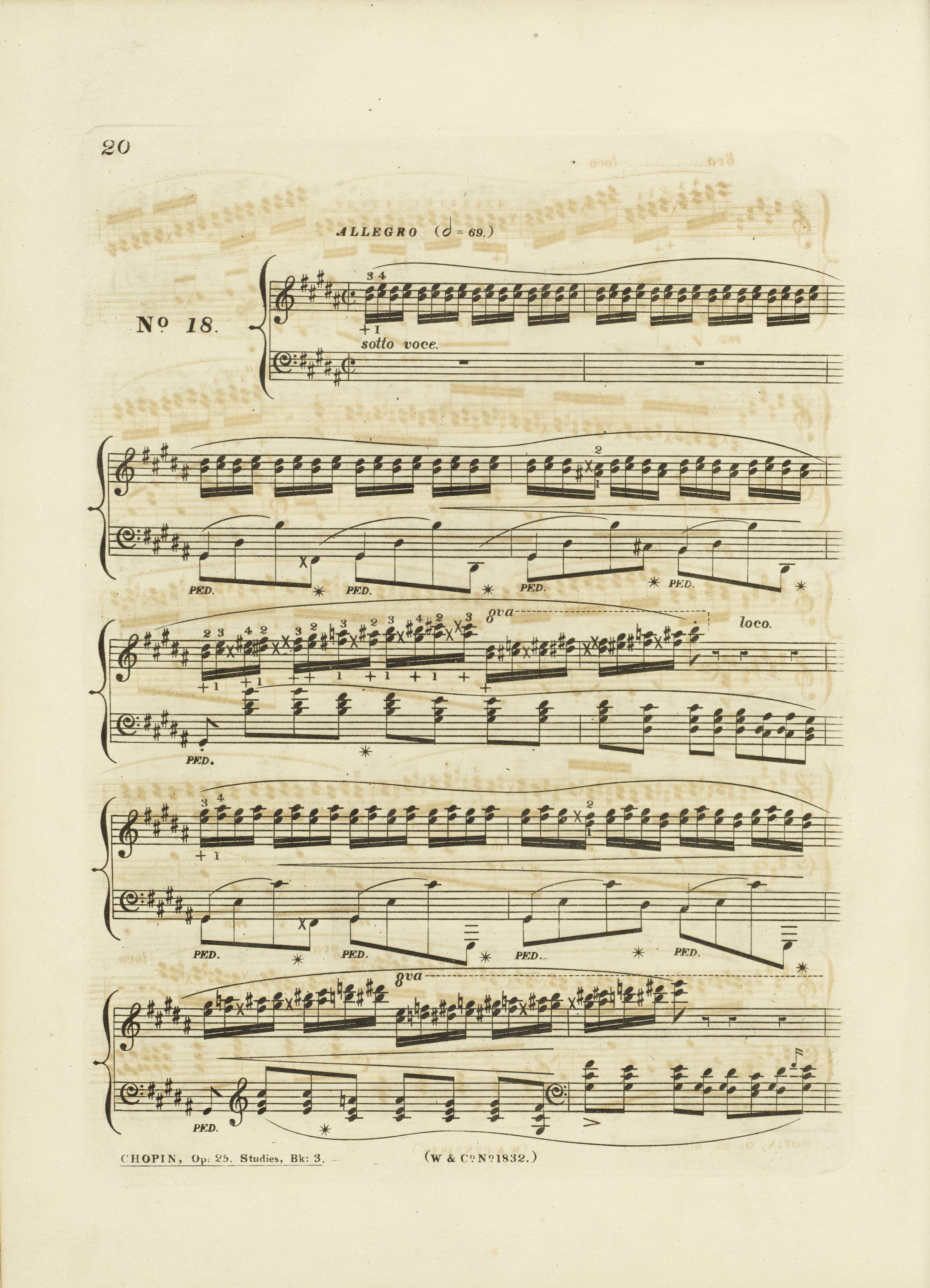Op. 2, Variations in B♭ major
Op. 10, 12 Etudes
Op. 11, Concerto in E minor
Op. 21, Concerto in F minor
Op. 22, Polonaise in E♭ major
Op. 24, 4 Mazurkas
Op. 25, 12 Etudes
Op. 26, 2 Polonaises
Op. 27, 2 Nocturnes
Op. 28, 24 Preludes
Op. 30, 4 Mazurkas
Op. 35, Sonata in B♭ minor
Op. 50, 3 Mazurkas
Op. 63, 3 Mazurkas
Op. 64, 3 Waltzes
(Op. 4), Sonata in C minor




Op. 25 No 6, Etude in G♯ minor
The sources differ in notation of the accidentals on the 1st and 4th semiquavers of the last group. Due to the regularity of the figurations, it can be assumed that Chopin was thinking about b 2-d
2-d 3 and d
3 and d 3-f
3-f 3. When the group is written without the octave sign, the text does not require any signs and this is the notation we see in FE. In the remaining sources, an octave sign was used (same as in the main text), which leads to the need of making the notation more precise:
3. When the group is written without the octave sign, the text does not require any signs and this is the notation we see in FE. In the remaining sources, an octave sign was used (same as in the main text), which leads to the need of making the notation more precise:
- In FC (→GE1) the last third is written at an erroneous pitch, hence the problem concerns only the 1st third, which is not preceded by any sign.
-
In EE1 there are also no signs before the 1st third, in turn, there are sharps before both notes of the last third. It is undoubtedly a mistake, as the
 next to d
next to d 3 makes sense only before the 1st third. In EE2 (→EE3) the
3 makes sense only before the 1st third. In EE2 (→EE3) the  concerning d
concerning d 3 was not moved, yet a
3 was not moved, yet a  was added before b
was added before b 2.
2. - GE2 (→GE3) includes the notation compatible with the contemporary standards, adopted also in the main text.
Compare the passage in the sources »
category imprint: Interpretations within context; Differences between sources; Editorial revisions
issues: EE revisions, Errors in EE, GE revisions, Errors of FC
notation: Pitch

